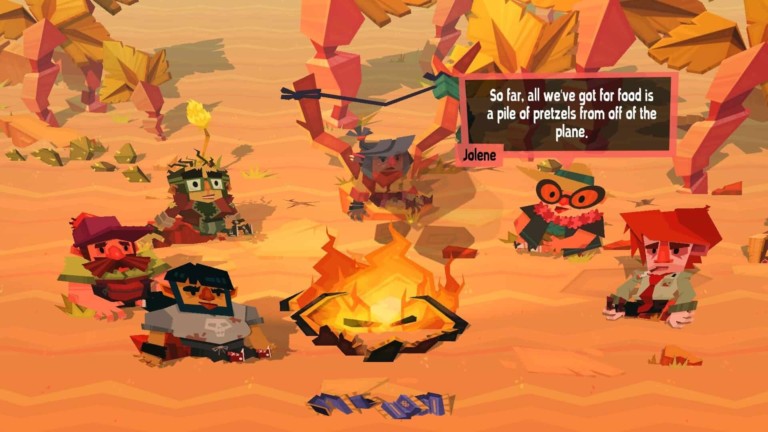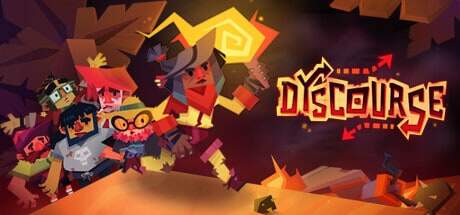Dyscourse – What We Think:
Dyscourse is a Choose Your Own Adventure game about surviving on a desert island after a plane crash. Driven more by dialogue than action, it’s imbued with both humor and heart, with solid writing and an interesting visual presentation making up for its occasional repetition.
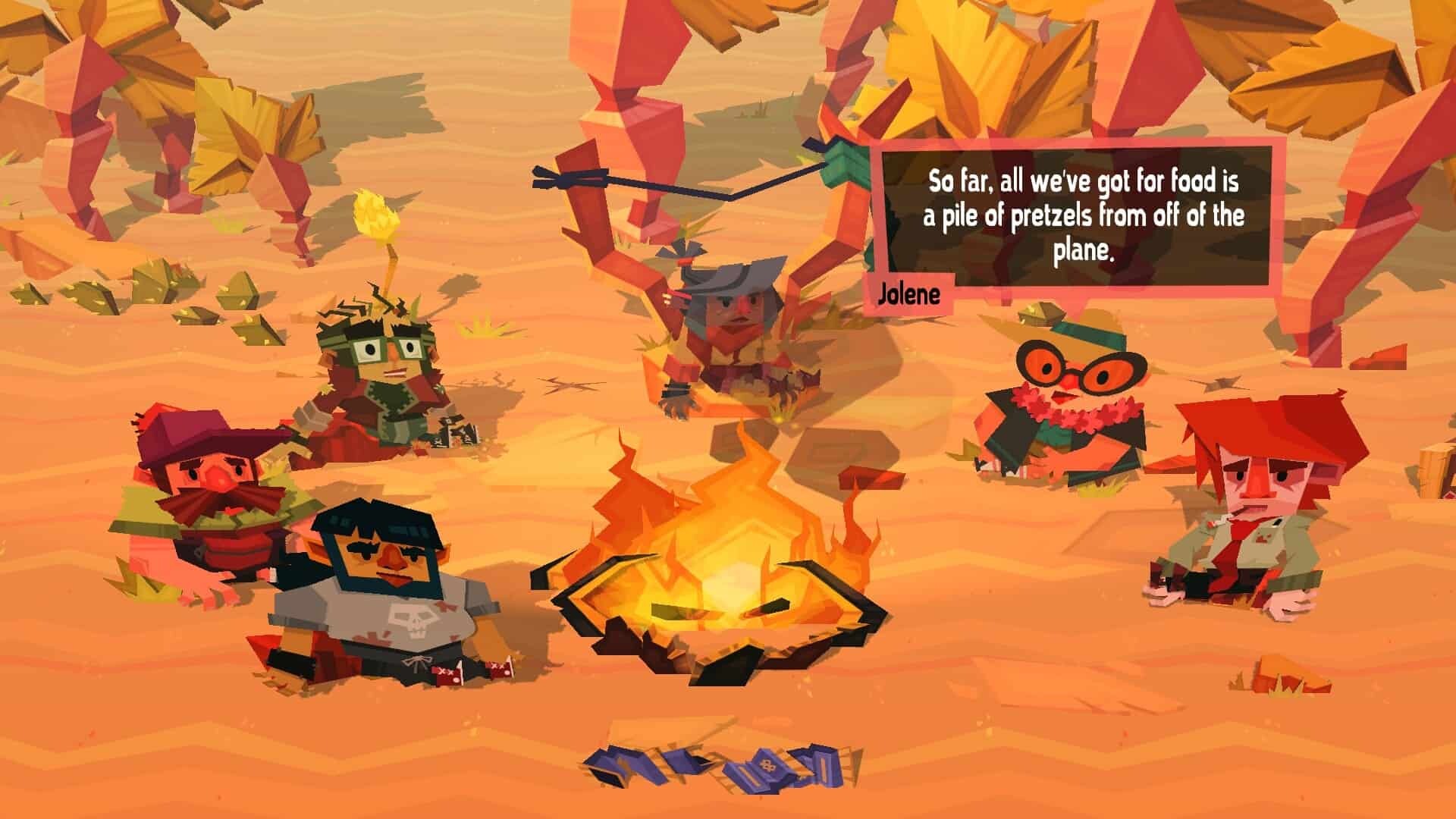
Island of Misfit Characters
Dyscourse’s graphics jump out at you first. Drawing on the paper cut-out-inspired approach Owlchemy Labs used in their earlier game Jack Lumber, Dyscourse is even more exaggerated and stylized–think ’90s-era Nickelodeon cartoons with a hint of South Park. The sound design adds to the comedic effect. Characters mumble nonsense like the NPCs in Magicka, albeit less directly inspired by the Swedish Chef.
The characters’ personalities match their cartoonish appearance, more or less, and come across as broad stereotypes. There’s a rural farmer couple, a chain-smoking office drone, a conspiracy nut and a gamer. As for yourself? As an aspiring artist and coffee shop employee, you’re basically there to play the straight man, such as it is…though you can also take a more vindictive approach, if you prefer, hoarding food for yourself and bossing the others around.
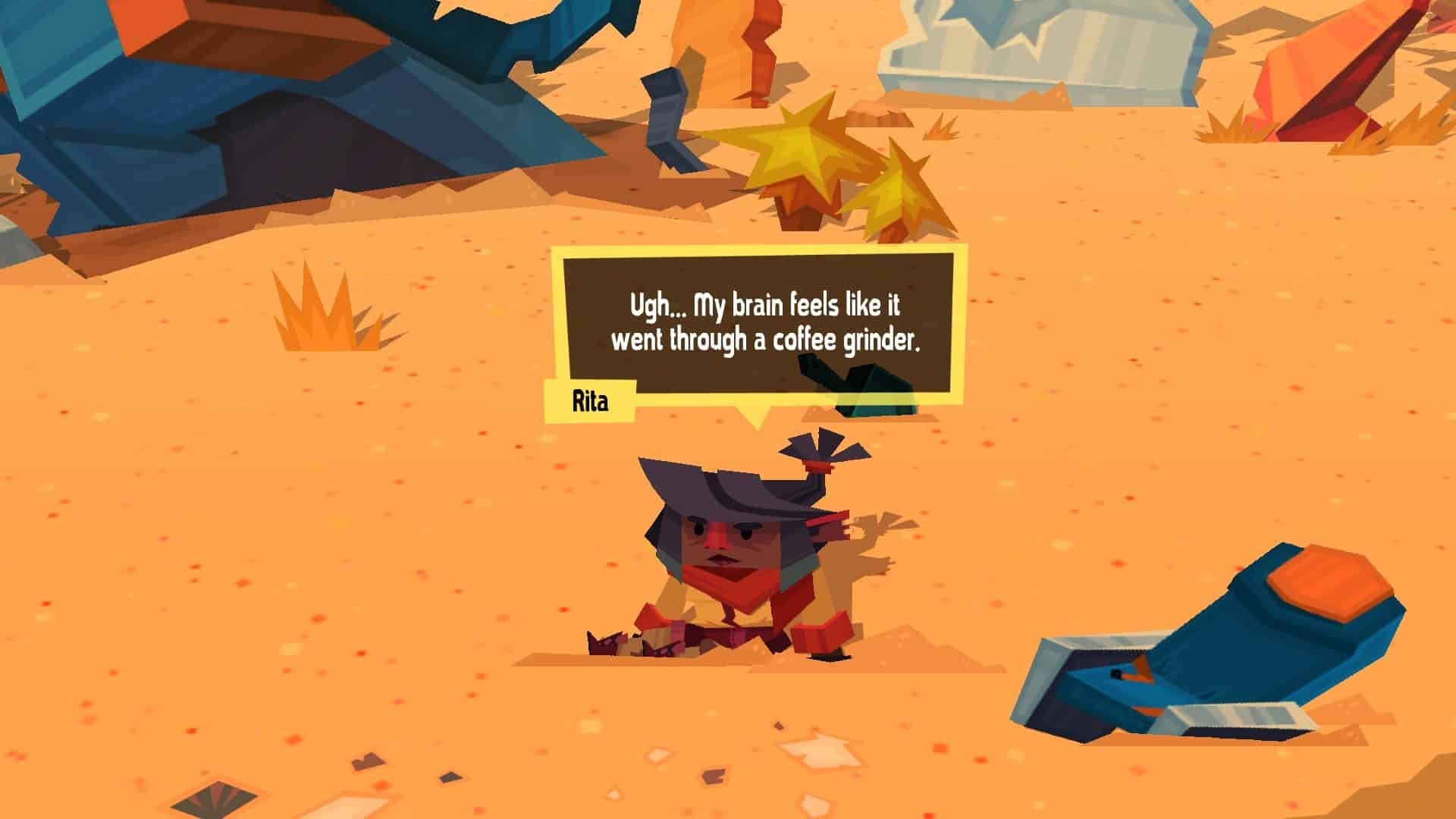
Dyscourse or Dat Course?
The game itself is essentially a straight-up Choose Your Own Adventure. There’s lots of talking, occasional action and interactivity driven by multiple choice options, usually involving dialogue. To spice things up, occasionally there’s a timer counting down while you wait to make your decision.
While it’s hardly an open-world approach and most of the game’s big set pieces appear in the same order regardless of your choices, decisions in Dyscourse do have definite consequences. And as in a real survival situation, even seemingly small decisions can lead to unexpectedly serious outcomes, including the deaths of your fellow survivors.
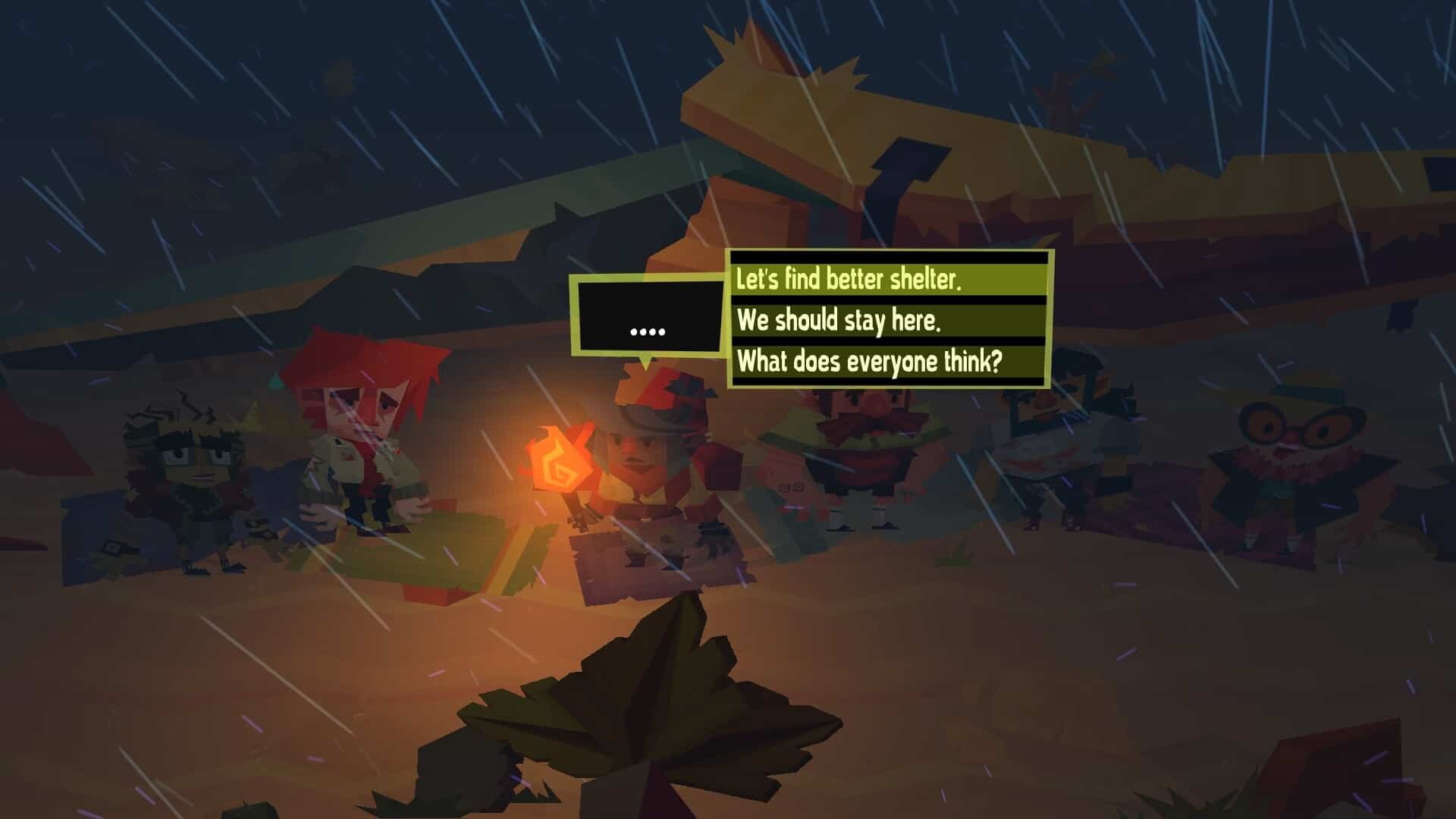
This is where the game’s replay value comes in: once you’ve been through the game once, you can play through it multiple times to not only explore different endings – and hopefully save more of your fellow crash victims – but also learn more about the back stories of the other survivors.
A Tale of a Fateful Trip
After playing through it a few times, I started to feel real affection for the characters as they grew from broad stereotypes to…well…narrower stereotypes. It’s still a comedic game, after all, and while it does have more serious and even poignant moments, Dyscourse is still closer to “Gilligan’s Island” than “Lost.”
As if to drive home that point, there’s a bonus game, “Indie Island,” that has essentially the same game mechanic but features a number of well-known devs, including the likes of Double Fine‘s Tim Schafer, and inside game jokes aplenty. It’s like the old conversation-starter about what things you’d take with you to a desert island, only you get to make choices like whether or not to kill Octodad creator Phil Tibitoski.
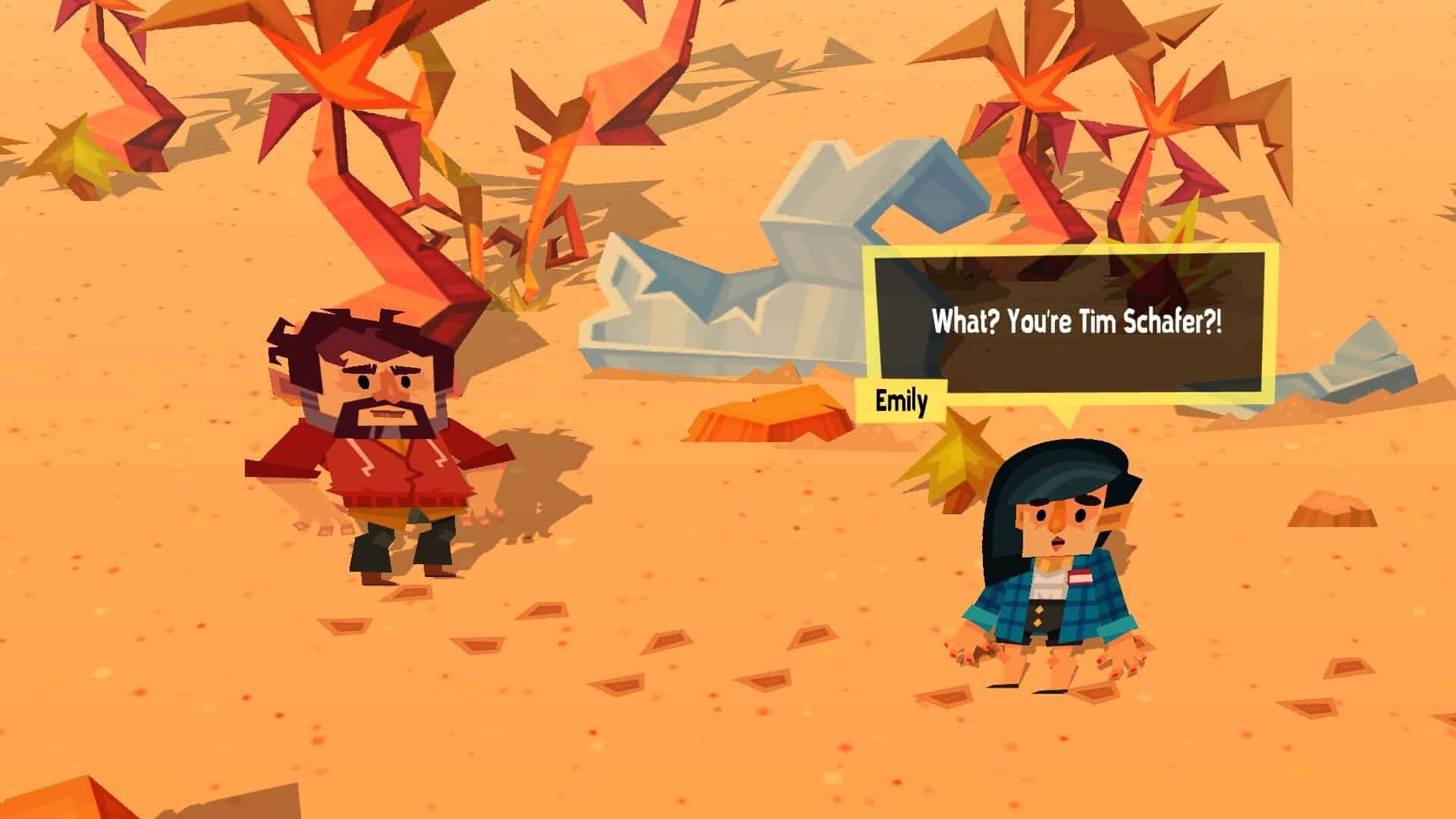
Groundhog Day
If the humor and the writing that emerge from multiple play-throughs are a high point, the repetition is a low point. For every scene that can change drastically depending on your choices, there’s a long chunk of dialogue that plays exactly the same every time.
While a Day Rewind feature helps to mitigate that somewhat by offering a sort of designer-approved version of “save scumming,” there’s still a sense of diminishing returns; the more content you unlock, the less new content there is to discover in future play-throughs.
Still, Dyscourse makes up for its occasional pacing issues with plenty of charm. The more time I spent with its characters, the more time I wanted to spend with them. I saw them grow from comedic stereotypes into people that could actually relate to, people I really cared about protecting from starvation, drowning and wild boars. Between its memorable, appealingly weird art style and its offbeat characters, there are a lot worse places to find yourself stranded.
Dyscourse is available via Steam.
[xrr rating=”3.5/5″]
Watch the trailer for Dyscourse below:

